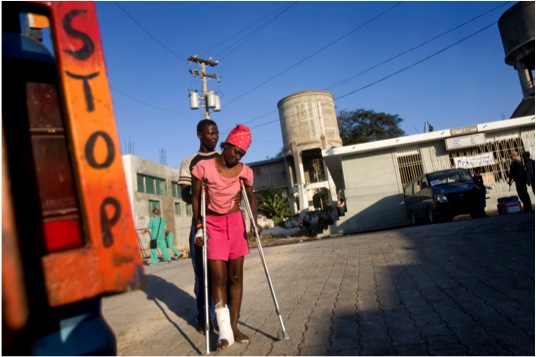Above: a woman in Haiti after the earthquake (UN Photo: Marco Dormino)
By the Caribbean Journal staff
Women and girls continue to suffer in Haiti, 20 months after the earthquake that shook the country, according to a report by international NGO Human Rights Watch. While the post-quake situation has been unbearable for much of the country, from tent camps to cholera, women and girls face additional hardships, according to the report.
These factors include lack of access to family planning, prenatal and obstetric care, resorting to “survival sex” to buy food for themselves and their children, and sexual violence.
Human Rights Watch conducted research at the end of 2010 and in early 2011, interviewing 128 women and girls in 15 displacement camps throughout Haiti.
A significant number of women and girls do not gain access to clinics, give birth without assistance on muddy tent floors and trade sex for food just to survive, the report said.
The report, “Nobody Remembers Us,” was written by Amanda Klasing, a fellow in Human Rights Watch’s Women’s Rights Division.
While some progress has been made in preventing sexual violence in the country, the situation is grave enough that women will sleep in front of UN soldiers for added security if violence becomes too active, according to the report.
“People will try to survive by the way they can,” said one Haitian woman living in the Mais Gate camp, Gheslaine. “It’s not good to make prostitution, but what can you do? You have to eat.”
The Haitian National Police made 534 arrests for gender-based violence in Port-au-Prince in the first four months after the earthquake, according to the National Network of Human Rights Defense.
“Haitian women and girls are not just victims of violence, discrimination or circumstance,” the report said. “They are an integral part of the Haitian economy and society. Investing in the women and girls of Haiti requires more than words or vast donor pledges; it requires a fundamental shift in how the state and international community approach women and girls, especially those displaced by the earthquake.”
